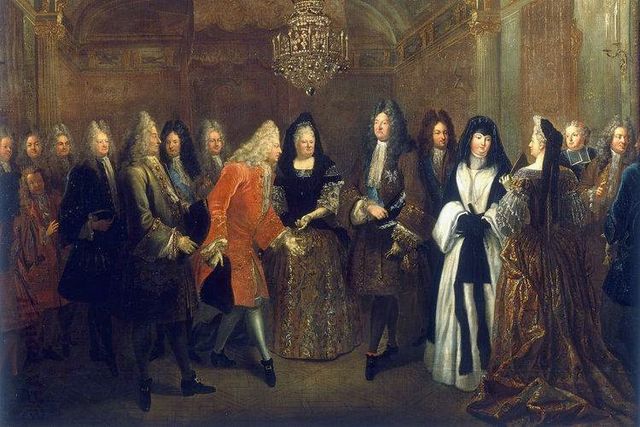Monarchy vs Aristocracy
When comparing monarchy and aristocracy, both similarities and differences are apparent between these forms of government. Monarchy and aristocracy are both connected to the ruling or governing of a nation or country. Monarchy is a type of government where the power and sole authority resides in the hands of one or two individuals. Conversely, aristocracy is a type of government where the ruling power lies in the hands of a select few who are typically considered the best-qualified individuals in a particular society. While monarchies are not common in modern societies, aristocratic families still exist. Aristocracy not only refers to a ruling party, but some societies also view them as the highest social class.
What is Monarchy?
Monarchy is a form of government where the ruling power is held by one or two individuals or a single family. The term originates from a Greek word meaning “a single ruler or chief.” The era of kings can be considered a period of monarchy. Monarchy can be classified into several categories. If the full authority and decision-making power rest with one individual with few or no legal constraints on their power, this is considered an absolute monarchy. In this scenario, the ruling can take the form of a dictatorship or autocracy. There are also hereditary monarchies, where leadership is passed down through family ties from one generation to another. In ancient times, kingship was passed from father to son, exemplifying hereditary monarchy. Today, many societies that once had absolute monarchies now have constitutional monarchies. In these cases, power is limited by a constitution and legislature, and there is little or no political authority. Monarchy is the opposite of democracy and is quite rare in the contemporary world.
Key Takeaways
- Monarchy is a form of government in which the power and sole authority lie in the hands of one or two individuals or a single family.
- In contrast, aristocracy is a form of government where the ruling power lies in the hands of a select few who are typically considered the best-qualified individuals in a particular society.
- While monarchies are not common in modern societies, aristocratic families still exist.
What is Aristocracy?
Aristocracy is a Greek term meaning “rule of the best.” This can be seen as a class of people in a specific society who hold greater power over many aspects compared to the general public. In some early societies, aristocracies were given ruling power and were considered the best-qualified group in that specific community. This ruling system differed from monarchy as there was a selected group of people in the governing position. Some nations that did not favor monarchies and also struggled with democracies have upheld aristocracies as their preferred ruling system. For example, ancient Greek people enjoyed an aristocratic ruling system.
Additionally, there is the aristocratic class. This group of people in a particular society is considered the highest social class and typically possesses hereditary ranks and titles from authorities. These elites are second only to monarchs, and in earlier periods, they may have held ruling power as well. Aristocratic families can still be found today, often living in mansions and enjoying prestige within society.
What is the difference between Monarchy and Aristocracy?
When examining monarchy and aristocracy, both similarities and differences can be observed. Both are related to ruling power and decision-making authority within a nation. Monarchies and aristocracies have their origins in ancient societies, but today, they are not very common.
Differences between the two include:
- In a monarchy, there is one single ruler who holds the power, while in an aristocracy, the power is shared among a select few individuals.
- Aristocracies do not possess the same level of power as a monarch.
